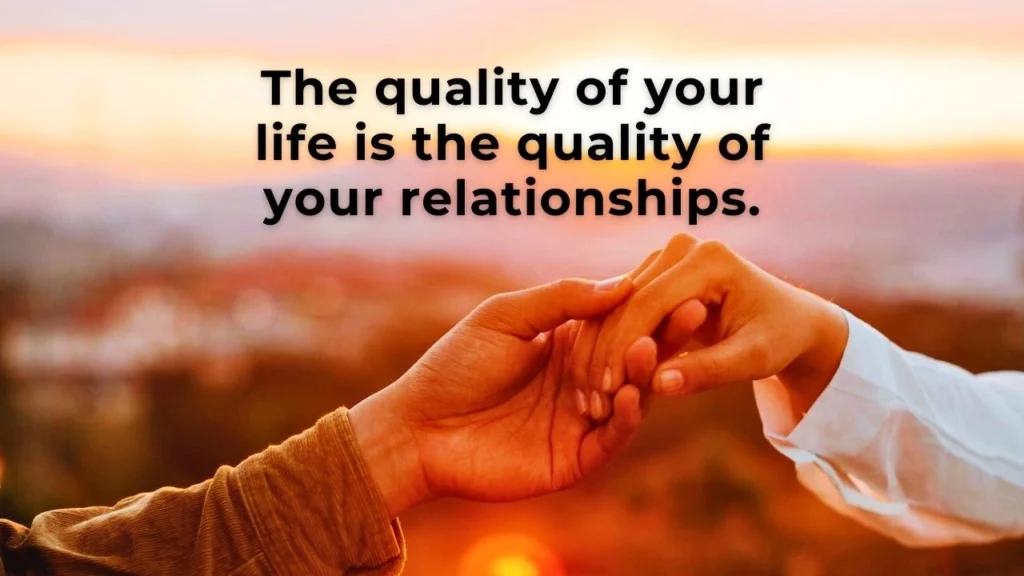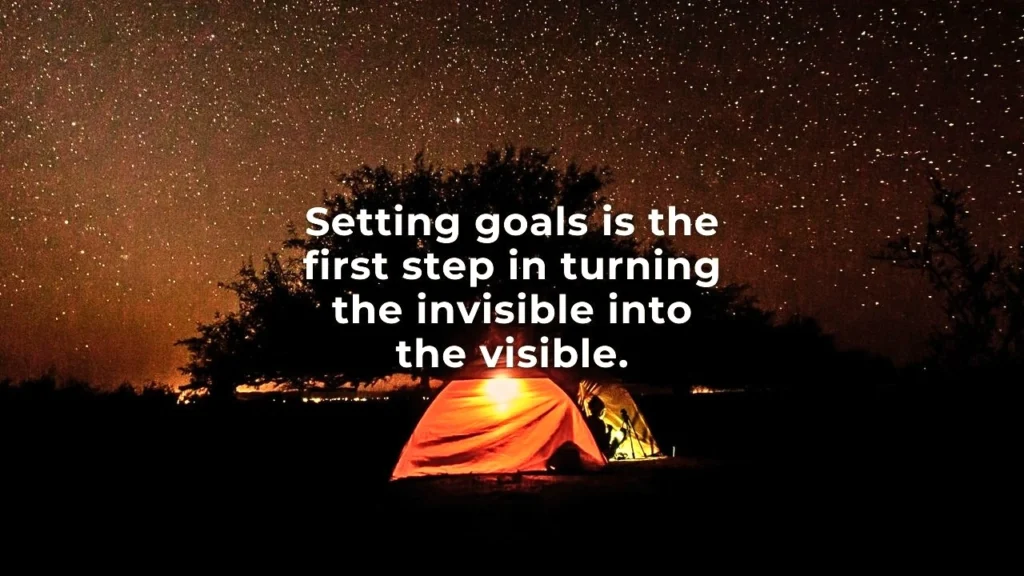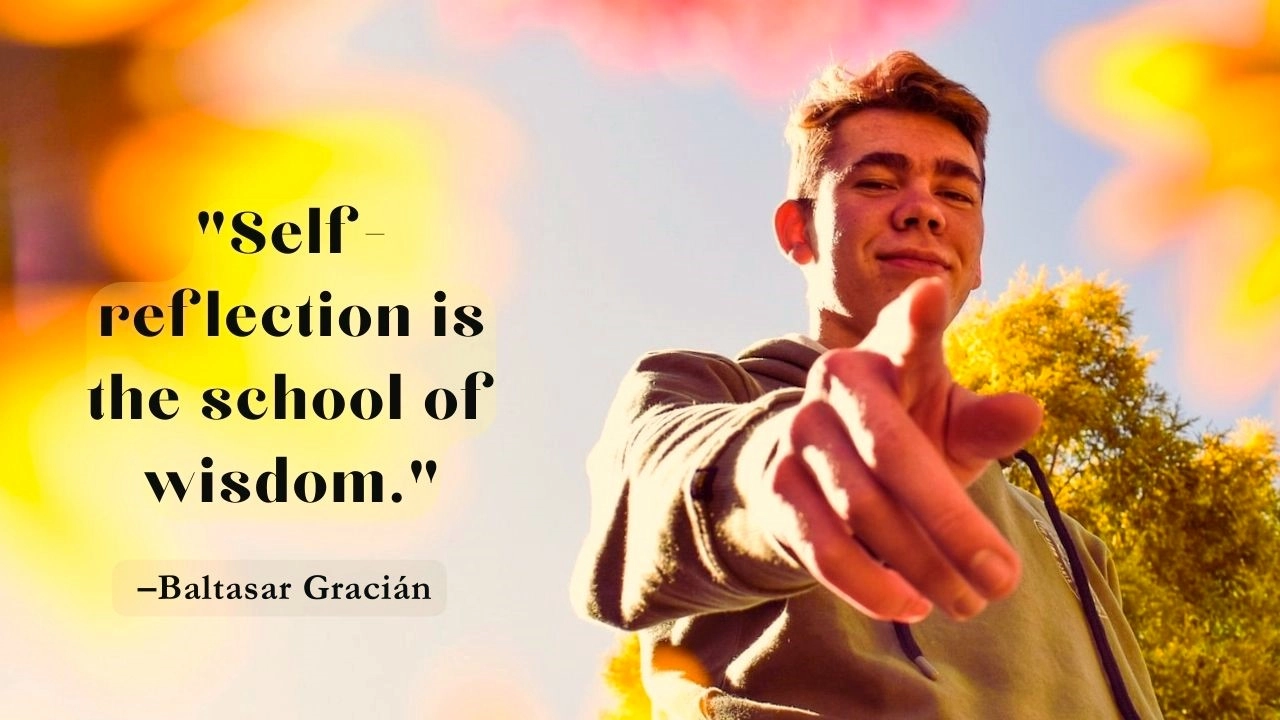Disclosure: Some of the links on this website may be affiliate links. As an Amazon Associate, we earn from qualifying purchases. The price you pay will be the same, but by using our affiliate links you are helping support our website. Learn more on our disclaimer page.
Introduction
In today’s fast-paced world, it’s easy to lose track of who we are and what we really want in life. This is probably because we juggle many responsibilities and often feel overwhelmed by work, relationships, and personal growth. As a result, we ignore one of the most vital parts of our well-being – self-reflection.
However, by taking some time to look within and asking thought-provoking questions, we can gain deeper self-understanding and find the clarity needed to prosper in all aspects of life.
In fact, a recent study conducted by Harvard Business School on self-reflection found that self-reflection greatly improves our learning from experiences.
In this blog, we will look at a wide range of self-reflection questions that cover various areas of life, including relationships, career, mental and physical health, and spirituality. These questions will help you find your strengths, weaknesses, values, and aspirations.
Answer them honestly, and trust me, you will gain valuable insights for self-growth.
So, without further ado, let’s jump right in and get started!
An Inspiring Example of Self-Reflection
“The unexamined life is not worth living.”
Socrates
I am sure you would have heard this famous quote by Socrates, the famous Greek philosopher. But what you may not know is the story behind its origin.
So, the quote comes from one of the crucial moments in Socrates’ life—his trial in Athens, where they accused him of corrupting the youth and being immoral.
But instead of denying the charges, Socrates saw this as an opportunity and used the trial to examine his own actions and beliefs. This self-reflection later became a key to his defence. By doing this, Socrates showed the importance of questioning oneself. Not only that, but he also encouraged others to reflect on their lives and beliefs. This approach also showed his commitment to truth and wisdom.
Now, let’s see how we can use self-reflection in our own lives.
Getting Started with Self-Reflection
Before we look at the self-reflection questions, let us first take a moment to understand how we can effectively use the self-reflection process. Of course, it is a powerful tool for personal growth and self-awareness, but it does require the right intention and the right environment in order to be effective.
So, here are some tips to help you make the most out of your self-reflection practice:
- Set aside dedicated time: Find a quiet and comfortable space where you can focus without distractions. It helps to dedicate a specific time slot each day (or week) for self-reflection on these questions.
- Be present: Although, it is often easier said than done but try to clear your mind and be fully present in the moment.
- Start with what appeals to you: Not all questions will resonate with you equally. Begin with the ones that stand out and gradually explore others as you feel ready.
- Be honest: Self-reflection requires honesty. Having an open heart will really help here. Remember not to judge yourself in any way.
- Write it down: It always helps to write your thoughts down by journaling your responses to the self-reflection questions.
So, now that we have the groundwork laid, let’s look at the self-reflection questions that will guide you on your path.
Self-Reflection Questions – Reflecting on Your Past

Clearly our experiences shape who we are today. So, here are some self-reflection questions to help you explore your past:
1. What battles have you fought and overcome in your life?
Reflect on the challenges you have faced and how you overcame them. What strengths did you discover within yourself?
2. Which have been your best moments in life so far?
Recall the experiences that have brought you the most happiness. What made those moments special?
3. What have been your biggest mistakes? What have you learned from them?
Reflect on the times when you stumbled and made mistakes. What lessons have you gained from those experiences?
4. Which past experiences are you most thankful for?
Recall the experiences that have shaped you positively. How have they influenced your values and beliefs?
5. If you could turn back time, what would you do differently? Why?
Image you were given the power to change certain aspects of your past. What choices would you make and why?
6. What’s the most exciting thing you have ever experienced?
Recall a thrilling moment in your life. How did it make you feel? What did you learn from that experience?
7. What’s the most spontaneous thing you’ve ever done? How did it make you feel?
What did you gain from stepping out of your comfort zone?
8. When was the last time you threw caution to the wind?
Try to remember moments when you took risks and defied your fears.
9. What’s the bravest thing you have ever done?
Think of a time when you displayed courage. How did that experience shape your character?
10. What are the things that you have already accomplished that you are proud of?
Recall your achievements and milestones. Realize how far you’ve come.
Reality Check of Your Present

Understanding your current situation and feelings is very important. So, by looking at the current state of your life, you can see what is helpful and also what needs to change.
So, here are some questions to help you do a reality check on your present:
11. What season of life are you in right now?
Ponder on the phase you are currently experiencing and how it impacts your goals and priorities.
12. What are your top priorities right now?
Reflect on the areas of life that demand your attention, and whether they aligned with your values and long-term aspirations.
13. How do you feel when you first wake up?
Observe your emotions and mindset upon waking. Do you feel energized and optimistic?
14. What takes up the majority of your time?
Identify the activities and responsibilities that consume most of your day.
15. What thoughts distract you when you’re trying to get to sleep?
Examine your nighttime thoughts. Do you notice any recurring worries or concerns?
16. Do you like your job?
Evaluate your level of satisfaction with your current work situation.
17. How do you spend your spare time?
Examine if your leisure activities fulfilling and aligned with your interests?
18. How would you like to spend your spare time?
Think about your ideal way of utilizing free time and the activities and hobbies that would bring you joy.
19. Which aspects of your life are you able to control?
Reflect on the areas of your life where you have influence. Evaluate how can you utilize this to create positive changes in your life.
20. What in your life aren’t you able to control?
Acknowledge the aspects of your life that are beyond your control. How can you adapt and find peace within these circumstances?
Visualizing Your Future

Setting goals and visualizing your future is essential for growth and fulfilment. By exploring your ambitions and desires, you can create a roadmap for the life you want to live.
So, here are some questions to help you visualize your future:
21. What does your ideal/dream life look like?
Paint a picture of your ideal life. Ask yourself about the aspects that bring you the most joy and fulfilment.
22. What does your ideal/dream home look like?
Visualize your dream living space. What features and qualities would make it ideal?
23. If you continue doing what you were doing right now, where will you be in five years’ time?
Reflect on the path of your current actions. Will they lead you closer to your long-term goals?
24. What’s on your bucket list?
Mirror the experiences and achievements you want to have in your lifetime. What adventures are calling you?
25. What do you see yourself doing workwise in five years’ time?
Discover your professional goals. What career path aligns with your skills and passions?
26. If you had the chance, what would you tell your future self?
Think about the advice you would give to your future self.
27. If you only had one year left to live, what would you do?
Imagine the limited time you have left. What experiences, relationships, and actions would you prioritize?
28. When telling your grandchildren about your life, what would you like to say?
Reflect on the heritage you want to leave behind. What stories and lessons do you hope to share with future generations?
29. If you met your future self, what advice do you think they would share with you?
Imagine meeting your future, wiser self. What guidance do you think they would offer?
30. What advice or encouragement would you give to your future self?
Plan the support and wisdom you would offer your future self. What affirmations and reminders do you need right now?
Taking Care of Your Well-being by Asking Self-reflection Questions

Of course, your well-being includes both your physical and mental health. Taking care of yourself is essential for overall happiness and satisfaction.
So, here are the questions to help you visualize your well-being:
31. How much time this week/month have you spent on caring for yourself?
Honestly ask yourself if you are making your well-being a priority.
32. What good habits do you have? Which good habits would you like to adopt?
Identify the positive habits that contribute to your well-being. What new habits would you like to develop?
33. What bad habits would you like to get rid of? What steps do you need to take to make that happen?
Examine the habits that are unfavourable to your well-being. How can you break free from them?
34. When was the last time you cried and why?
Reflect on the emotions that have moved you to tears.
35. What makes you feel energized and refreshed?
Identify the activities and experiences that rejuvenate you, and how you can add more of them into your daily life.
36. What do you worry about most?
Recognize the recurring worries or anxieties that occupy your mind. Are they within your control?
37. Are you your own best friend or your own worst enemy?
Reflect on your self-talk and inner dialogue. Are you supportive and compassionate toward yourself?
38. Do you love yourself?
Thoroughly examine your relationship with self-love and self-acceptance.
39. What does self-love mean to you?
Reflect on your understanding of self-love.
40. What’s your favourite self-care activity? Why do you enjoy it so much?
Notice the self-care practices that bring you joy. How can you prioritize them in your routine?
Self-Reflection – Developing Meaningful Relationships

Indeed, our relationships play a significant role in our happiness and well-being. Developing meaningful connections requires self-awareness and planned efforts.
So, here are the questions to help you improve your relationships:
41. Which relationships matter to you the most?
Identify the people who hold significant importance in your life. How can you prioritize and enhance these relationships?
42. What do you love to do with your immediate family?
Reflect on the activities and experiences you enjoy sharing with your family and how you can spend more quality time together.
43. What do you love most about your spouse and kids?
Explore the qualities that you appreciate in your spouse and children. How can you express your love and appreciation for them?
44. Why did you marry your spouse?
Reflect on the reasons why you chose your life partner. How can you nurture and strengthen your bond?
45. Who has had the biggest impact on your life to date?
Identify the individuals who have influenced and shaped you significantly. How can you express your gratitude and appreciation for their impact?
46. Who has disappointed you the most? How did they disappoint you?
Reflect on past disappointments in your relationships. How can you find healing and forgiveness within yourself?
47.Which relationships are you happy with?
Examine the relationships that bring you joy and fulfilment.
48. Which relationships are you neglecting?
Identify the relationships that may have been neglected or overlooked. How can you rekindle these connections?
49. Who do you most enjoy spending time with? Why is that?
Reflect on the people who bring you joy and positive energy.
50. Am I a good listener?
Assess how well you listen to others without interrupting or judging, allowing them to express themselves freely.
Reflection to Help Accomplish Your Goals and Dreams

Indeed, by reflecting on your goals and aspirations, you can create a roadmap for success. So, here are self-reflection questions to help you accomplish your goals:
51. Which goals did you accomplish this week/month/year?
Celebrate your achievements and milestones. Reflect on the goals you have successfully accomplished.
52. Which goals didn’t you accomplish this week/month/year? Why do you think that was?
Examine the goals that you didn’t achieve. What obstacles or challenges prevented you from reaching them?
53. What does success look like to you?
Explore your definition of success. How can you align your goals with your personal values and aspirations?
54. What motivates you?
Reflect on the driving forces behind your actions. What inspires and motivates you?
55. Who inspires you the most? Why is that?
Identify the individuals who inspire you. What qualities and achievements do they possess?
56. Who do you hope to become in the next 12 months?
Try to visualize your future self and the person you wish to become. What steps can you take to move closer to that vision?
57. What do you want to have accomplished by this time next year? In 3 years? 5 years? 10 years?
Set specific goals and milestones for different time frames. How can you break them down into actionable steps?
58. What one thing have you wanted to do but not yet been brave enough to try?
Reflect on the experiences that have scared you. How can you get the courage to pursue them?
59. Name one thing you want to achieve this year more than anything. How can you make this happen?
Identify your top priority for the year. What actions can you take to make it a reality?
60. What is stopping you from achieving your goals?
Examine the limiting beliefs that are holding you back. How can you overcome them and move forward?
Conclusion
To conclude, practicing self-reflection is a valuable habit that can not only help us grow, but also to understand ourselves better. By introspecting, and asking ourselves effective questions, we can learn more about our thoughts, feelings, and actions.
With that in mind, I would encourage you to start self-reflection and see how it can help improve your life.
I would also like to invite you to share your experiences in the comment box below. Which of these self-reflection questions appeal to you the most?
We would love to hear your story!
Frequently Asked Questions (FAQ’s)
- Micro-Habits: How Small Changes Lead to Big Results - October 19, 2024
- Self-Doubt: How Impostor Syndrome Silently Steals Confidence - September 19, 2024
- Responding vs. Reacting: 4 Zen Lessons from the Poisonous Arrow - August 19, 2024



